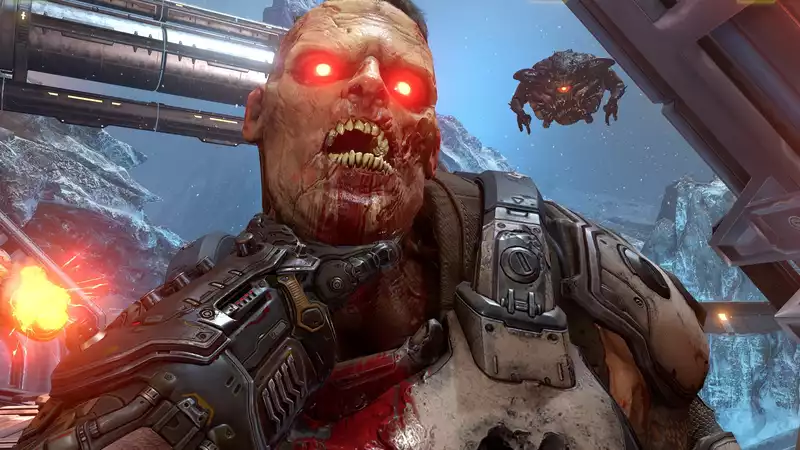The first update for Doom Eternal was released yesterday, introducing a new progression system, quality-of-life adjustments, and a Denuvo anti-cheat. One of those additions didn't work as well as the others.
Not to be confused with the Denuvo Anti-Tamper that we usually refer to when we mention Denuvo, this is a new "anti-cheat solution" that Irdeto has been developing for the past three years, specifically to tackle cheating in multiplayer mode It is specifically designed to tackle cheating in multiplayer mode.
Those who played after the update may not have noticed. There is no tray icon or splash screen, and Irdeto admits that "this invisibility may raise some eyebrows."
When Doom Eternal is first launched, Denuvo Anti-Cheat installs a kernel-mode driver, which starts when the game is launched and stops each time the game is finished. Apparently, it avoids collecting "personally identifiable information" and does not scan files, take screenshots, or stream shell code. However, it does collect information about how your OS interacts with Doom and sends it to Amazon servers.
However, you are still giving your PC a lot of access because the kernal-mode driver hangs in the core of the operating system. Because the kernal-mode driver hangs in the core of the operating system, the concern is that if someone finds a vulnerability, they will be able to control the most basic functions of the PC, posing a major security risk.
Since the update, "Doom Eternal" has seen a spike of 267 negative reviews on Steam and poor forum reviews; on Reddit, one of the top posts (via Nibel) recommends players remove it from their PCs. There have also been horror stories about performance issues and crashes.
Riot has faced similar backlash for Valorant's own kernel-mode anti-cheat software, but that version seems to be more severe than Denuvo. It is difficult to determine whether it has had a positive impact, but Riot recently banned 9,000 cheaters.


Comments